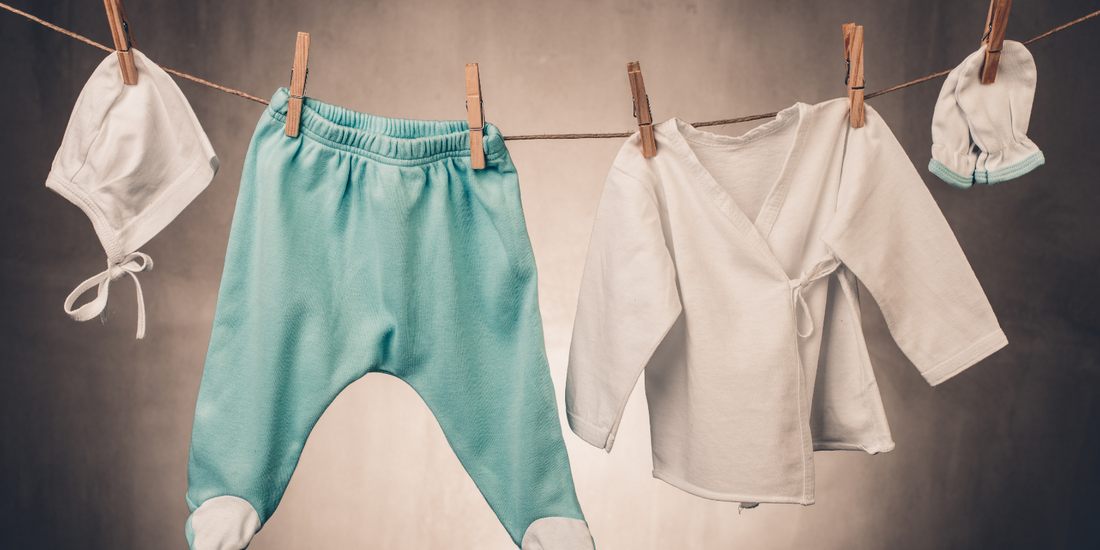When it comes to choosing the right fabric for baby clothes, there are many factors to consider. From softness to breathability, the right fabric can make all the difference in your baby's comfort. In this article, we'll take a closer look at some of the best fabrics for baby clothes, as well as some to avoid.
Softness
Softness is a crucial aspect when it comes to selecting the right fabric for baby clothes. Newborns and young infants have delicate and sensitive skin that is easily irritated and uncomfortable. To ensure that your baby is comfortable and feels good, it is important to choose fabrics that are soft, gentle, and smooth against their skin.
Cotton is one of the most popular fabrics used for baby clothes. It is soft, breathable, and lightweight, making it ideal for warm weather and summer months. Cotton is also hypoallergenic, which means it is less likely to cause an allergic reaction in babies. Bamboo is another excellent option for baby clothes. It is naturally soft and has a luxurious feel, and it is also naturally antibacterial, making it ideal for babies with sensitive skin. Silk is another option to consider, especially for special occasion outfits. It is soft, lightweight, and has a luxurious feel. However, it is important to note that silk can be quite expensive, and it requires special care when washing and drying.
When shopping for baby clothes, make sure to touch and feel the fabric to assess its softness. You can also check the fabric content label to see if the clothes are made from soft and gentle fabrics such as cotton, bamboo, or silk. Keep in mind that the softer the fabric, the more comfortable and happier your baby will be.
The softness of the fabric is a key factor to consider when choosing baby clothes. Soft fabrics such as cotton, bamboo, and silk are ideal for babies, as they are gentle and smooth against their delicate skin. Always touch and feel the fabric to assess its softness and check the fabric content label to make sure the clothes are made from soft and gentle materials.
Breathability
Breathability is a crucial aspect to keep in mind when selecting fabrics for baby clothes as it directly affects the comfort and well-being of your baby. Trapped moisture on the skin can cause discomfort and even lead to rashes and skin irritations, which can be particularly distressing for the delicate skin of a baby. It is essential to choose fabrics that are lightweight and allow air to circulate around your baby's skin to keep them cool, dry and comfortable. Fabrics such as cotton and linen are ideal for this purpose. They are breathable and allow air to pass through, reducing the chance of moisture being trapped on the skin. This makes them perfect for summer and warm weather, where temperatures are higher and babies are at a higher risk of overheating. When choosing baby clothes, always consider the breathability of the fabric to ensure your baby stays comfortable and protected against skin irritations.
Durability
Durability is another key factor to consider when choosing fabric for baby clothes. Babies are active and playful, and their clothes will likely take a lot of wear and tear. Look for fabrics that are strong and durable, such as cotton and denim. These fabrics can withstand the rough and tumble of everyday life, and are perfect for playwear and everyday clothes.
Hypoallergenic
Hypoallergenic fabrics are a must-have for baby clothes if your baby has sensitive skin. These fabrics are designed to be gentle on delicate skin and reduce the risk of skin irritation or an allergic reaction. The best fabrics for babies with sensitive skin are bamboo and silk, as they are naturally hypoallergenic and free of harsh chemicals. Bamboo is particularly suitable for baby clothes because it is soft, breathable, and naturally anti-bacterial, making it ideal for keeping your baby's skin healthy and free of irritation.
Silk is another great fabric for babies with sensitive skin. It is soft, smooth, and gentle against delicate skin, making it perfect for baby clothes. Additionally, silk is naturally hypoallergenic and provides a luxurious feel for your baby. However, it is important to note that silk can be expensive, so it may not be the most cost-effective option for baby clothes.
Both bamboo and silk are great choices for baby clothes, as they offer a comfortable, soft, and gentle feel for your baby. Additionally, they are both hypoallergenic, which means they are less likely to cause skin irritation or an allergic reaction. Consider these fabrics for baby clothes, especially if your baby has sensitive skin.
Fabrics to Avoid
Avoiding fabrics like polyester and rayon is crucial for the health and comfort of your baby's delicate skin. Polyester and rayon are made from synthetic fibers, which are known for being harsh and abrasive against the skin. This means that they can cause irritation and discomfort, particularly for babies with sensitive skin. These fabrics are also not very breathable, so they can trap moisture against the skin, leading to rashes and other skin irritations.
In addition to causing skin irritation, synthetic fabrics like polyester and rayon can also release harmful chemicals. Many synthetic fabrics are treated with chemicals during production to enhance their appearance, increase their durability, or make them easier to care for. These chemicals can be harmful to your baby's skin and overall health, and some have even been linked to cancer and other serious health problems.
When it comes to choosing fabric for baby clothes, it's important to prioritize the health and comfort of your baby. Opt for natural, breathable, and hypoallergenic fabrics like cotton, bamboo, and silk. These fabrics are soft, gentle against the skin, and less likely to cause irritation or harm to your baby. By taking the time to select the right fabrics, you can help ensure that your baby stays comfortable, healthy, and happy, even as they grow and develop.
In conclusion, choosing the right fabric for baby clothes is essential for your baby's comfort and well-being. Look for soft, breathable, durable, and hypoallergenic fabrics that are gentle against your baby's delicate skin. By avoiding harsh fabrics and synthetic materials, you can ensure that your baby is comfortable and happy in their clothes.

